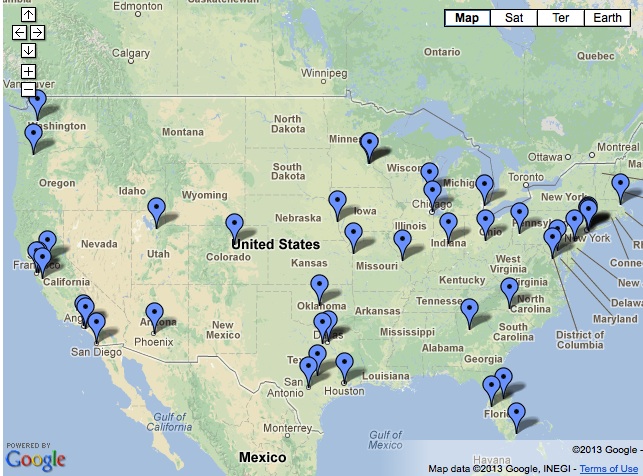Peter Kafka of the Wall Street Journal’s All Thing D blog has been closely following Google’s attempts to position YouTube as a successor to television.
Key to that success is getting advertisers on board to spend as much money with online channels as they do on broadcast TV.
To date that’s failed and most of the online ad spend has come at the expense of print media – the money advertisers spent on magazines and newspapers has moved onto the web, but TV’s share of the pie is barely changing and may even be increasing.
The challenges facing web advertising is discovering what works on the new mediums.
McDonalds Canada Behind The Scenes campaign is touted as one of the success stories of YouTube advertising, although Kafka isn’t fully convinced.
McDonald’s modest ad tells a story, flatters viewers by telling them they’re smart enough to go backstage, and still ends up pushing pretty images of hamburgers in front of them. That’s pretty clever advertising sort-of masquerading as something else but not really.
We’re trying to apply old ways of working to a new technology something we do every time a new technology appears.
Moving from silent movies
Probably the best example of this is the movie industry – if you look at the early silent movies they were staged like theatrical productions. It took the best part of two decades for movie directors to figure out the advantages of the silver screen.
Shortly after movie directors figured out what worked on the big screen, the talkies came along and changed the rules again. Then came colour, then television, then the net and now mobile. Each time the movie industry has had to adapt.
It isn’t just the movie and advertising industries facing this problem; publishers, writers and journalists are struggling with exactly the same issues.
Most of what you read online, including this blog, is just old style print writing or journalism being published on a digital platform. Few of us, including me, are pushing the boundaries of what the web can do.
Waiting for Sarnoff
David Sarnoff figured out how to make money from broadcast radio and television in the 1930s with a model that was very different from what the movie industry was doing at the time.
Sarnoff built Radio Corporation of America into the world’s leading broadcaster and the modern advertising industry grew out of RCA’s successful model.
Today both the broadcasting and advertising industries are applying Sarnoff’s innovations of the 1930s to the web with limited success. Just like movie producers struggled with theatrical techniques at the beginning of the Twentieth Century.
Figuring out what works online is today’s great challenge. Google are throwing billions at the problem through YouTube but there’s no guarantee they will be the RCA of the internet.
We may well find that a young coder in Suzhou or a video producer in Sao Paolo has the answer and becomes the Randolph Hearst or David Sarnoff of our time.
The future is open and it’s there for the taking.







